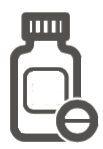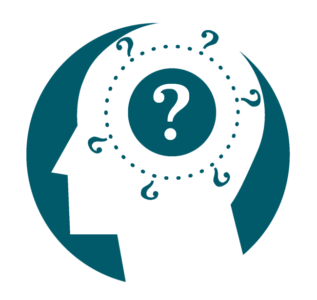Gabapentin Abuse
Overview – What is Gabapentin?
DERIVES FROM:
- The Active ingredient in Neurotonin
- Nonbenzodiazepine Antiepileptic Medication
WHAT IT’S USED FOR:
- Treat Seizures
- Alcohol Withdrawal Syndrome
EFFECTS OF ABUSE:
- Dizziness or physical unsteadiness
- Slurred speech
- Double vision
 Gabapentin, the generic name for the active ingredient in Neurotonin and other similar prescription medications, is a nonbenzodiazepine antiepileptic medication. This drug has been increasingly used to treat not only seizures, but also alcohol withdrawal syndrome, since it is allegedly less addictive than benzodiazepines. In theory, gabapentin is less addictive because it does not act on the same opioid neural pathways that stimulate dopamine release and reuptake, so the drug should not stimulate as much of a sense of reward. However, gabapentin abuse has been on the rise in recent years.
Gabapentin, the generic name for the active ingredient in Neurotonin and other similar prescription medications, is a nonbenzodiazepine antiepileptic medication. This drug has been increasingly used to treat not only seizures, but also alcohol withdrawal syndrome, since it is allegedly less addictive than benzodiazepines. In theory, gabapentin is less addictive because it does not act on the same opioid neural pathways that stimulate dopamine release and reuptake, so the drug should not stimulate as much of a sense of reward. However, gabapentin abuse has been on the rise in recent years.
It is important for people taking gabapentin to contact a doctor if they wish to stop taking this prescription drug. Whether the individual has a prescription, or has been abusing gabapentin recreationally, there are withdrawal symptoms associated with stopping gabapentin. It is important to work with a medical professional to stop gabapentin use, especially in cases of addiction, tolerance, or abuse.
Side Effects and Overdose
Gabapentin can cause various side effects, some of which might be serious. Less serious gabapentin side effects include:
- Blurry vision
- Symptoms similar to a cold or the flu
- Hoarseness
- Lower back or side pain
- Loss of strength
- Trembling or shaking
- Swelling, especially in feet, lower legs, and hands
- Increased appetite
More serious side effects, especially if they persist, include:
- Rolling eye movements, back and forth, that are continuous
- Loss of memory
- Drowsiness
- Headache
- Dizziness or physical unsteadiness
- Anxiety
- Unusual thoughts, especially paranoid or suicidal thoughts
- Cognitive problems
- Diarrhea
- Heartburn
If people begin to abuse gabapentin recreationally, or becomes addicted to this medication, they are more likely to begin increasing their dose in order to get high. This can lead to an overdose. Symptoms of gabapentin overdose include:
- Double vision
- Diarrhea
- Drowsiness
- Slurred speech
These symptoms can increase in severity, leading to hospitalization or death. It is important to get emergency medical help immediately for a person suffering from an overdose.
Who Is Most Likely to Abuse Gabapentin?
 Gabapentin is not considered addictive, although abuse of the drug is on the rise. People who struggle with alcohol abuse and addiction have frequently been prescribed gabapentin to treat withdrawal symptoms like cravings, insomnia, and dysphoria. Although this is still technically an off-label use for gabapentin-based medications, scientific studies have shown that it is effective at treating these symptoms.
Gabapentin is not considered addictive, although abuse of the drug is on the rise. People who struggle with alcohol abuse and addiction have frequently been prescribed gabapentin to treat withdrawal symptoms like cravings, insomnia, and dysphoria. Although this is still technically an off-label use for gabapentin-based medications, scientific studies have shown that it is effective at treating these symptoms.
Unfortunately, people who have struggled with substance abuse problems in the past might develop similar problems related to medications used to treat their addictions. It is important for doctors who prescribe gabapentin to treat drug or alcohol withdrawal symptoms to monitor their patients for potential drug-seeking behaviors or signs of substance abuse.
Abuse of gabapentin is relatively low among the general population, at about 1.1 percent. However, one study showed that 22 percent of individuals who had been in drug treatment centers and received gabapentin as a therapy had developed an addiction to this medication. In an article published by the Society for the Study of Addiction, 15-22 percent of people who abused opioid medications also abused gabapentin; 40-65 percent of individuals who had a gabapentin prescription became addicted to, or began abusing, the medication. The report added that people who had a previous history of substance abuse were more at risk for developing an addiction to gabapentin.
Although gabapentin does not act on the central nervous system in the same way as other drugs of abuse, like alcohol or opioids, people who have become addicted to gabapentin report feelings of euphoria, relaxation, and wellbeing. However, this mechanism is not well understood. This medication is a CNS depressant, like some other drugs of abuse including alcohol or opioids, so those euphoric and relaxing effects can lead to abuse.
Gabapentin could, in some cases, be mixed with other CNS depressants to enhance the effects of all substances, according to a report from the National Health Service in England. Even small amounts of alcohol or opioid medications, for example, can lead to a stronger high when mixed with gabapentin. A report published on PubMed noted that a Scottish police report stated that gabapentin was being used as a “cutting agent” in heroin, in an attempt to enhance the effects of the illegal opioid. Because many people with legitimate prescriptions develop a tolerance to this medication over time, it is recommended for doctors to increase the dosage; this makes diversion, or illegally selling the prescription on the black market, much easier.
Mixing substances can lead to overdose more quickly. The report noted that morphine in particular can make gabapentin’s effects more potent, and vice versa.
The Food and Drug Administration’s medication guide for gabapentin warns about mixing medications or alcohol with gabapentin, due to the high risk of dangerous side effects.
Gabapentin Withdrawal Symptoms and Risks
Although gabapentin acts on different receptors in the brain, scientific surveys like Gabapentin Abuse and Overdose: A Case Report, suggest that withdrawal symptoms from gabapentin are similar to withdrawal symptoms from alcohol or benzodiazepine. This can, in some cases, include delirium tremens, a condition more commonly seen in people going through alcohol withdrawal. This is sometimes referred to as gabapentin withdrawal syndrome, and it can be dangerous.
Symptoms of gabapentin withdrawal include:
- Mood swings
- Restlessness
- Difficulty swallowing
- Blurry vision
- Nausea or vomiting
- Fever and/or shivering
- Excessive sweating
- Fatigue
- Dizziness
- Chest tightness
- Shortness of breath
- Muscle aches and pains
- Seizures or fits
- Suicidal thoughts
The most dangerous gabapentin withdrawal symptoms are seizures. Because gabapentin is an antiepileptic medication, it can induce seizures when the regular dose is suddenly stopped, even if no seizure disorder had been present before. This is part of the delirium tremens condition associated with gabapentin withdrawal syndrome.
If a person stops taking gabapentin “cold turkey,” without the help of a medical professional to taper their dose, withdrawal symptoms typically begin 1-2 days after the medication has stopped. However, withdrawal symptoms can appear as quickly as 12 hours after the last dose, and they can last up to a week.
Another report, which investigated gabapentin withdrawal syndrome, suggested that tapering this medication following the guidelines of benzodiazepine tapering helped to ease withdrawal symptoms the most.
Treatment for Abuse
 When individuals decide to stop taking gabapentin, especially if they have become addicted to this medication, the first step should be talking to their doctors. Especially in the case of drug abuse or addiction, a medical professional can recommend treatment options, such as inpatient or outpatient rehabilitation, which can offer both medical and social support for withdrawal and overcoming addiction.
When individuals decide to stop taking gabapentin, especially if they have become addicted to this medication, the first step should be talking to their doctors. Especially in the case of drug abuse or addiction, a medical professional can recommend treatment options, such as inpatient or outpatient rehabilitation, which can offer both medical and social support for withdrawal and overcoming addiction.
Doctors may recommend a magnesium supplement. Some studies have shown that gabapentin and magnesium bind to the same receptors in the brain, so a magnesium supplement can ease gabapentin withdrawal symptoms in some people.
Doctors will also work with their patients to begin tapering off gabapentin. Quitting any addictive substance suddenly increases the risk of relapse and overdose, and this is true with gabapentin as well. Tapering helps wean the body off its dependence on gabapentin, and this can reduce the risk of gabapentin withdrawal syndrome.
It is very important for people who struggle with addiction to gabapentin to get professional help. Not only will these people have medical help for withdrawal symptoms, but rehabilitation programs offer individual and group therapy to help people handle cravings and triggers. This comprehensive care increases the likelihood of sustained recovery.